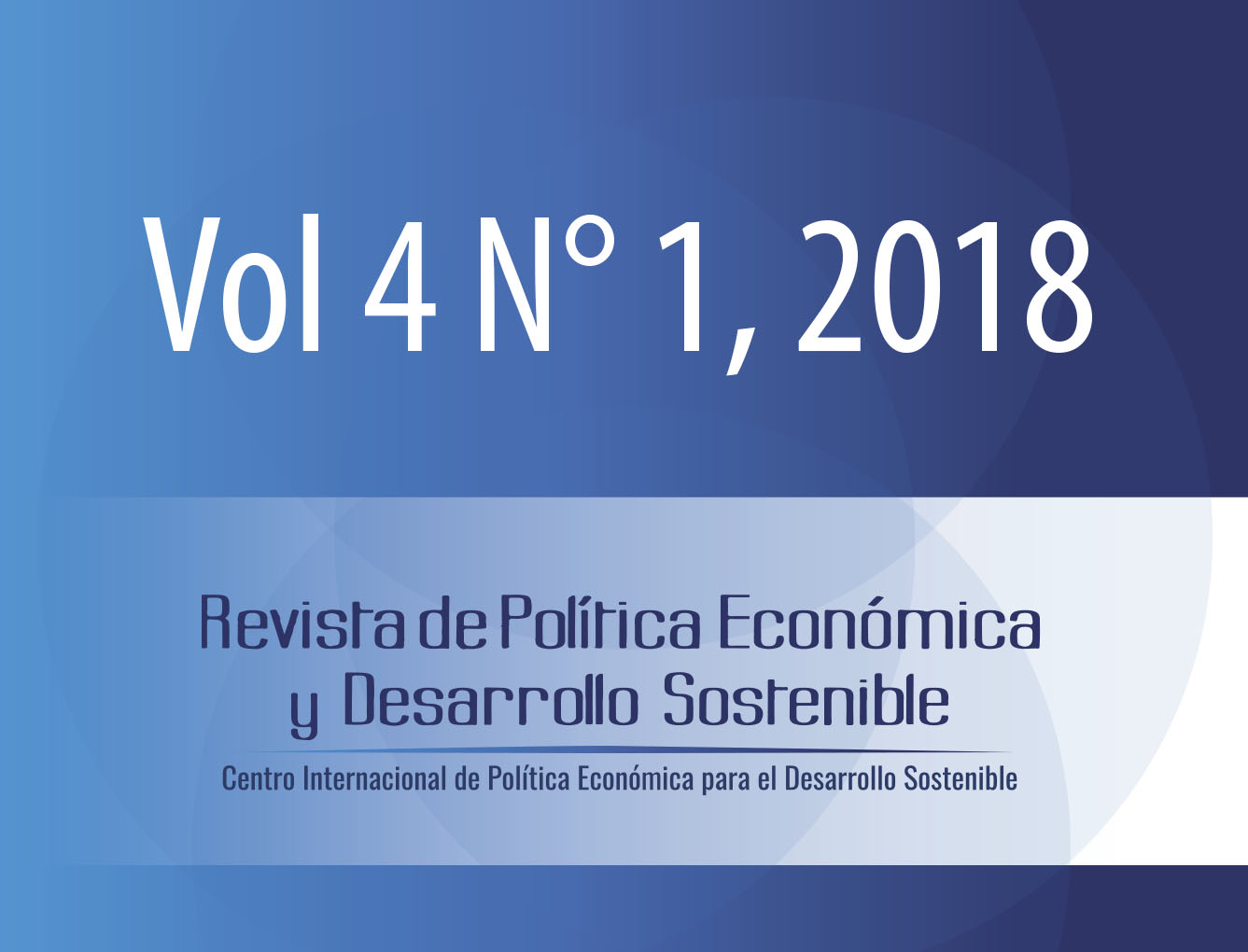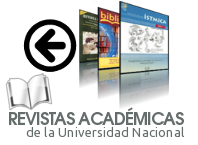Innovación y crecimiento inclusivo en Costa Rica: El caso del sector lácteo
DOI:
https://doi.org/10.15359/peds.4-1.2Keywords:
Agroindustry;, dairy industry, Economics, Sustainable development, Agricultural productsAbstract
The purpose of this article is to analyze the structure of the agricultural innovation system and its contribution to inclusive growth in the dairy sector of Costa Rica. The conceptual framework incorporates three main concepts: sustainable development, innovation systems and inclusive growth. Milk cattle ranching has been affected in the last twenty-five years by changes in primary production and the market. Consequently, the planning of processes for innovation has been the result of a set of historical and organizational dynamics strongly influenced by the participation of cooperatives and their productive development objectives. At least four priority axes are identified for the management of innovation and the competitiveness of the sector: genetic improvement, nutrition, pasture management and adaptation to climate change. We conclude that any effort to stimulate innovation and knowledge in the dairy value chain, should: (1) correspond to the objectives of the national development policy, (2) contain a perspective of territorial development and (3) consider reflective dialogue processes with the different actors in the management of learning and the establishment of synergies for collective action.
References
Ali, I. & Zhuang, J. (2007). Inclusive Growth toward a Prosperous Asia. Policy Implications. ERD Working Paper Series, 97. Economics and Research Department, Asian Development Bank, Manila.
Arocena, R. y Sutz, J. (2002). Sistemas de Innovación y Países en Desarrollo. Universidad de la República de Uruguay. [Electronic version]. SUDESCA Research Papers 30.
Arond, E., Rodríguez, I., Arza, V., Herrera, F., & Sánchez, M. (2011). Innovation, sustainability, development and social inclusion: Lessons from Latin America. STEPS Working Paper 48.
Brighton: STEPS Centre.
Barboza-Arias, L. M. (2016). Creación de competencias y capacidades en el subsector lechero costarricense. Revista de Política Económica para el Desarrollo Sostenible, 2 (1), pp. 1-28.
Barboza-Arias, L. M. (2017). Fortalecimiento competitivo y organizacional de la ganadería de carne en Costa Rica: propuesta de mejora para la Corporación Ganadera (Corfoga).
Cuadernos de Política Económica. Heredia: CINPE, UNA.
Bijman, J. & G. Ton (2008) Producer organisations and value chains. Capacity.org (34), pp. 4-6. Cámara Nacional de Productores de Leche (CNPL) (2015). Documentos técnicos. Recuperado de
Chaminade, C., Lundvall, B. A., Vang, J., & Joseph, K. J. (2009). Designing innovation policies for development: towards a systemic experimentation based approach. In Lundvall, B. et
al. (Eds.). Handbook on Innovation Systems and developing Countries: Building Domestic Capabilities in a Global Setting. United Kingdom: Edward Edgar.
Cozzens, S. & Sutz, J. (2012). Innovation in Informal Settings: A Research Agenda. Program on Innovation for Inclusive Development (IID) of the Canadian International Development
Research Centre (IDRC).
Edquist, C. (1997). Systems of innovation approaches-their emergence and characteristics. In Fagerbert, J. Mowery, D. C. & Nelson, R. R. (Eds.). System of innovation: technologies,
institutions and organizations. London, England: Oxford University Press Pinter.
Edquist, C. & Johnson, B. (1997). Institutions and organisations in systems of innovation. In Edquist, C. (Ed.) Systems of Innovation: Technologies, Institutions and Organizations.
London and Washington: Pinter/Cassell Academic.
Gereffi, G., & Lee, J. (2016). Economic and social upgrading in global value chains and industrial clusters: Why governance matters. Journal of Business Ethics, 133(1), pp. 25-38. Doi:10.1007/
s10551-014-2373-7
Instituto Nacional de Estadística y Censos (INEC). (1985). V Censo Nacional Agropecuario. San
José: INEC.
Instituto Nacional de Estadística y Censos (INEC). (2015). VI Censo Nacional Agropecuario. San
José: INEC.
Kaplinsky, R. (2015). Global value chains in manufacturing industry: Where they came from,
where they are going and why this is important. In Weiss, John/Tribe, Michael (eds):
Routledge Handbook of Industry and Development. London: Francis & Francis Group, pp.
-203.
Klerkx, L., Aarts, N., & Leeuwis, C. (2010). Adaptive management in agricultural innovation
systems: The interactions between innovation networks and their environment. Agricultural
systems, 103(6), 390-400.
Lundvall, B. y Lorenz, E. (2010). Innovación y desarrollo de competencias en la economía
del aprendizaje. Implicaciones para las políticas de innovación. En Parrilli, M. (Ed.).
Innovación y aprendizaje: lecciones para el diseño de políticas. España: Innobasque, 44–99.
Malerba, F. (Ed.). (2004). Sectoral systems of innovation: concepts, issues and analyses of six major
sectors in Europe. Camvridge, UK: Cambridge University Press.
Malerba, S. (2005). Sectoral Systems: How and why innovation differs across sectors. In
Fagerberg J, Mowrey, D and Nelson R. (Eds.). The Oxford Handbook of Innovation, pp.
- 406, Oxford: Oxford University Press, Oxford.
Nelson, R. R. (1998). National innovation systems. Regional Innovation, Knowledge and Global
Change. London: Pinter.
Orozco, J. (2004). Innovation and Performance Improvements in the Cooperative Sector, Costa
Rica. SUDESCA Research Papers No. 38, Aalborg University, CINPE-UNA.
Rojas, A. (2016). Consideraciones técnicas en la escogencia del sistema de producción: pastoreo- semiestabulación-estabulación. Memorias del Congreso Lechero. Costa Rica: Cámara Nacional de productores de Leche.
Sampedro, J. L. y Díaz, C. (2016). Innovación para el desarrollo inclusivo: Una propuesta para su análisis. Economía Informa, (396), pp. 24-48
Van den Bergh, J. C. (1996). Ecological economics and sustainable development. Theory, methods and applications. Northampton, MA, USA: Edward Elgar Publishing Ltd.
Yin, R. K. (1984). Case Study Research: design and Methods, Applied social research. Methods Series, Newbury Park CA: Sage.







